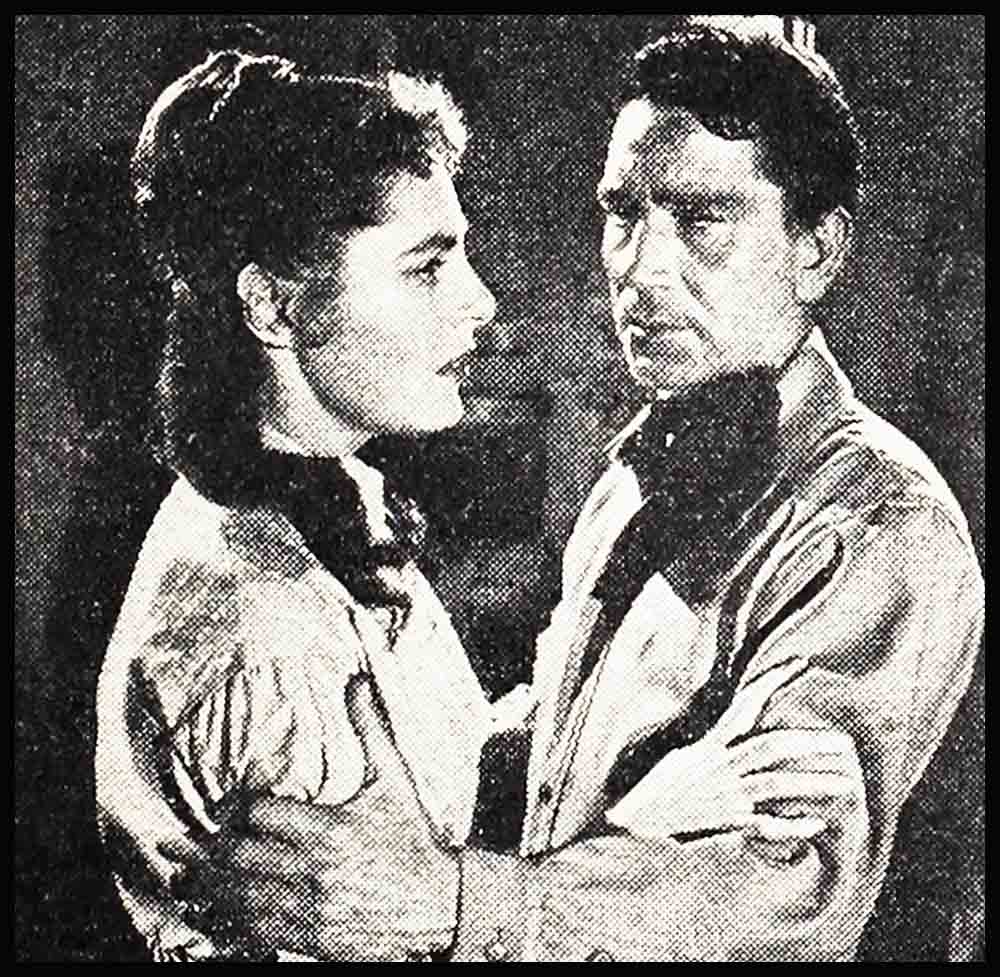
Go Out To A Movie
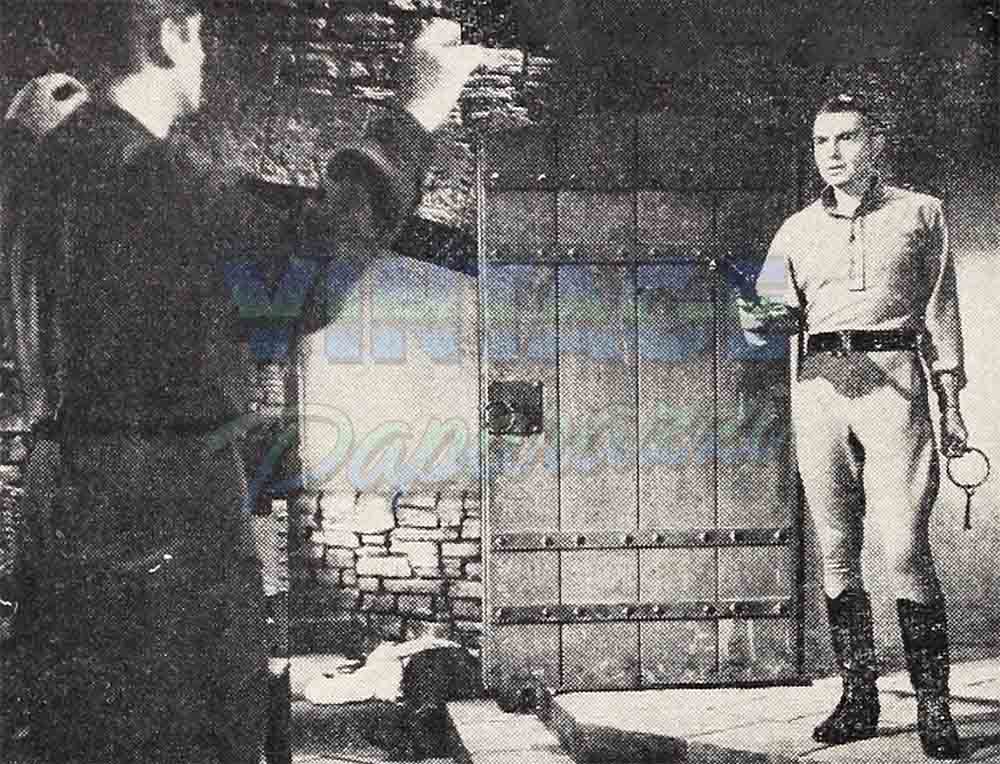
THE PRISONEK OF ZENDA (M-G-M, TECHNICOLOR)
This new version of the famous mythical-kingdom romance is turned out in full-blown elegance. It’s light without poking fun at the time-honored to-do over who’ll get the throne of Ruritania and the hand of the future queen. Stewart Granger cuts a splendid figure as both the tippling king and the debonair Englishman who doubles for him after he’s been drugged on coronation eve. His love scenes with Deborah Kerr (the perfect fairy-tale princess) are quite affecting in their high-minded way. But James Mason gaily steals the picture. Of course, his billing indicates that he’s supposed to; Rupert of Hentzau always was the choice role in this story. As the rogue equally adept with knife, rapier, blunt instrument, bright remark and doublecross, Mason’s a delight to watch.
Verdict: Blithe escape into graceful adventure
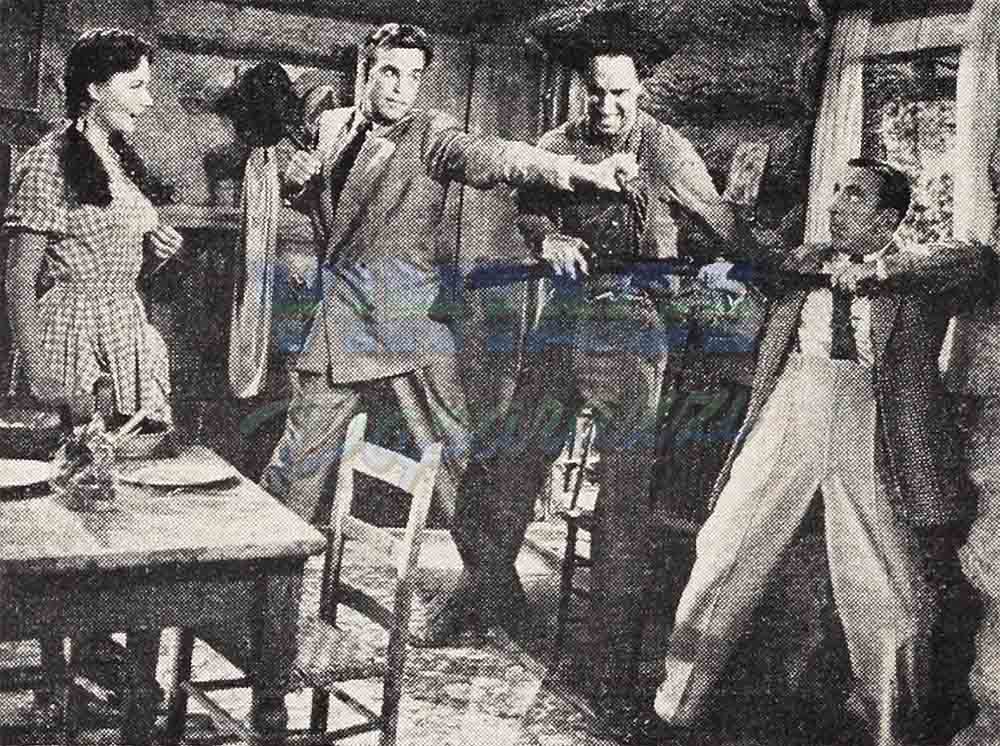
BLOODHOUDS OF BROADWAY (20TH CENTURY-FOX, TECHNICOLOR)
As the stage proved with “Guys and Dolls,” Damon Runyon’s raffish world makes a nice setting for a musical. Scott Brady fits into this fictitious Broadway society neatly as a big-shot bookie, and Mitzi Gaynor, as a hillbilly belle, is the conventional innocent whose trustfulness softens hard characters. Subconsciously in love with his Georgia protegee, Scott’s on the spot; his regular doll (Marguerite Chapman), who “spells love m-i-n-k,” will be sure to tell the law all if he walks out on her. In the bookie’s entourage, Wally Vernon. Edwin Max and Mitzi Green mouth the Runyon lingo to the most amusing effect. The winning enthusiasm of the Gaynor song-and-dance style gets full play, with moppet Sharon Baird collaborating entrancingly on the first number, attractive Richard Allan on others. Music and story are in neat balance.
Verdict: Tuneful carryings-on of babes and bookies
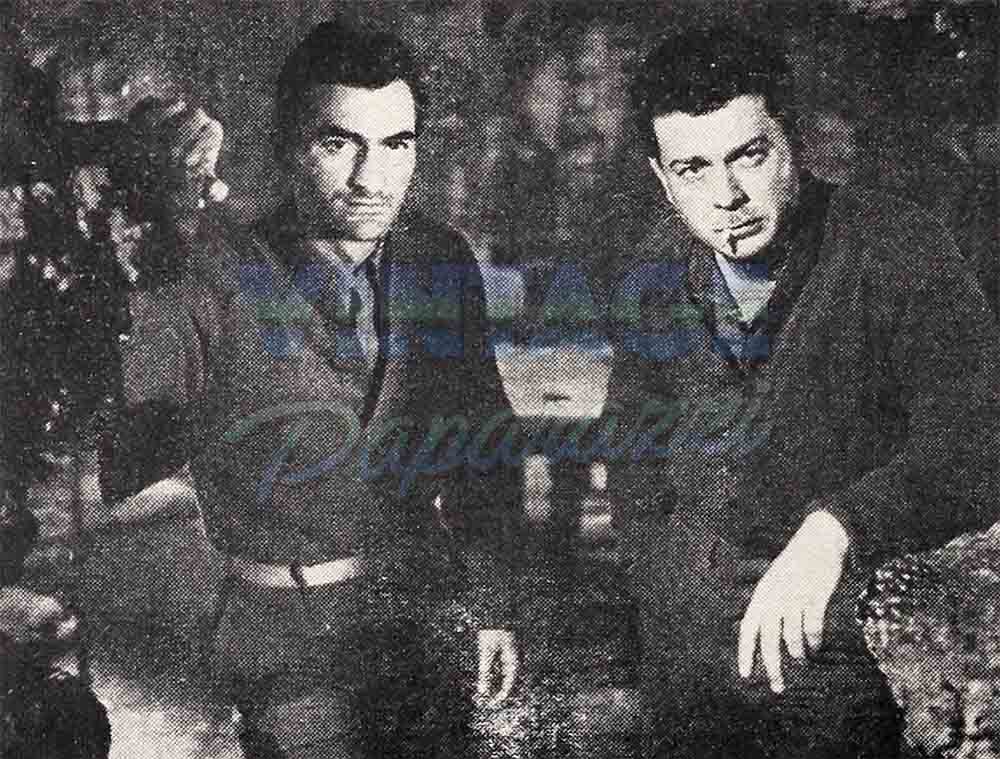
EIGHT IRON MEN (COLUMBIA)
If this story of one day on the Italian front had been filmed six or seven years ago, its impact would have been a good deal stronger. It’s timely enough; these tired, bored. nerve-worn soldiers could be fighting anywhere, from Troy to Korea. But earlier movies have made us too familiar with the guy from Brooklyn, the kid, the leader harrowed by responsibility. And it’s to this movie’s credit that its men seem so individualized. their talk so true and deceptively casual (though there’s too much of it). Among the platoon due for relief but held up by one bumbling G.I. who’s gotten himself trapped in a shell hole, there are no star roles. But Bonar Colleano stands out as the Brooklyn type, with Lee Marvin scoring as the sergeant and Richard Kiley and Arthur Franz doing good jobs. The rest of the cast also underplays skillfully.
Verdict: Realistic war interlude, short on action

FACE TO FACE (RKO)
Following a new trend, a pair of filmed short stories is tied up in one picture-package. The first story, Conrad’s “The Captain,” is a dreary, would-be philosophical seafaring incident; James Mason, a captain with his first command. gives refuge on his ship to a man accused of murder. But Crane’s “The Sheriff of Yellow Sky” is an enchanting blend of humor. ruefulness and suspense. Call it a comedy companion piece to “Higlı Noon,” sketching the death of the Wild West. The town hum (Minor Watson) is on a spree, reverting to his own and the town’s lusty youth. Nobody can keep him from shooting up the joint except sheriff Robert Preston, who’s on a train, bringing home his bride (pretty, wholesome Marjorie Steele), awed by the luxury of the trip.
Verdict: Two-story film, with one fine episode
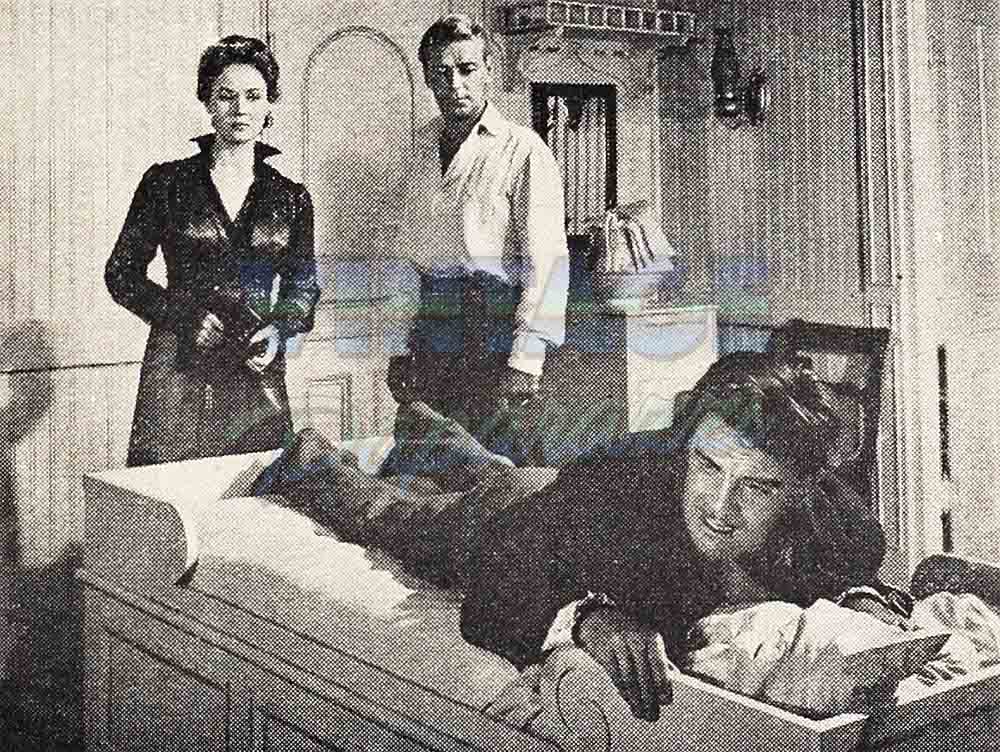
THE IRON MISTRESS (WARNERS, TECHNICOLOR)
A lively adventure tale of the early Nine-teenth Century casts Alan Ladd as young Jim Bowie, inventor of the knife referred to in the film’s title. A proud backwoodsman, he comes to New Orleans in the colorful era of the code duello, and stays to make his fortune, so that he may win the heart of a lovely flirt. Infatuation blinds him to the lady’s true character, but Virginia Mayo, returning to the handsome-hussy routine she does so well, leaves the audience in no doubt. Seems odd to complain about a shortage of sex in a movie. but tlıis one could have used a bit more, to explain its hero’s love for such a worthless female. But it’s Ladd’s best action him in a long while; dueling scenes are full of excitement. Joseph Calleia’s a suave heavy, but Phyllis Kirk hardly suits her sehorita role as Alan’s consolation prize.
Verdict : Dashing yarn of old-time New Orleans
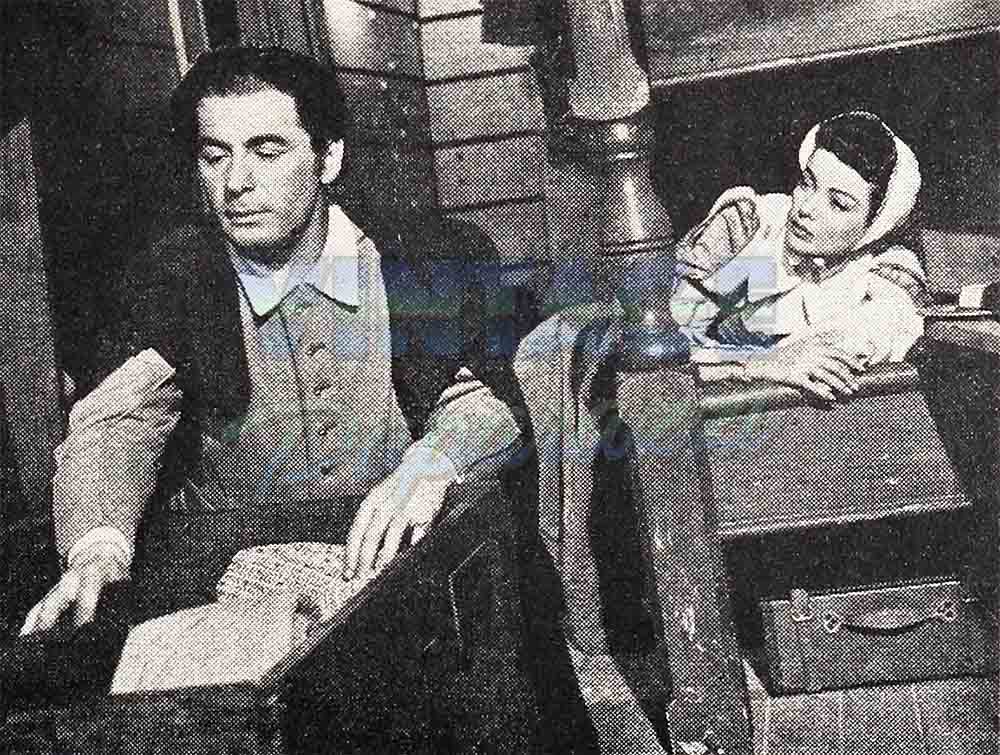
PLYMOUTH ADVENTURE (M-G-M, TECHNICOLOR)
No stuffy history-book essay. the movie saga of the Mayflower voyage boasts a big cast headed by Spencer Tracy, Gene Tierney, Leo Genn and Van Johnson. But a straggling narrative cuts down the intended dramatic power. Conviucing details put you right aboard the tiny ship, to share cramped quarters, short rations, illness and the dangers of the autumn Atlantic. As the cynical captain who considers his human cargo a pack of fools. Tracy has the fattest assignment and—not quite the easy performer he used to be—seems conscious of the fact. He and Gene are involved in one of the love stories; as the wife of William Bradford (Genn), she fights against the captain’s hold over her. Van and Dawn Addams share the lighter romance of John Alden and Priscilla. Below Metro’s high Standard, the color suggests travel postcards.
Verdict: Attempt to humanize the Pilgrim story
Stars and Stripes Forever (20th Century-Fox, Technicolor)
Many a musical has been tripped up by stray chunks of plot that keep interrupting the music. This one gets around the barrier handily; it has nothing that can be properly called a plot, simply an amiable, rambling account of a famous man’s life. As John Philip Sousa, bandleader and foremost composer of march tunes, Clifton Webb hides behind a beard and a pair of pince-nez to re-create a pompous, warmhearted musician. Ruth Hussey’s familiar role of quizzical, devoted wife sketches in Sousa’s home background.
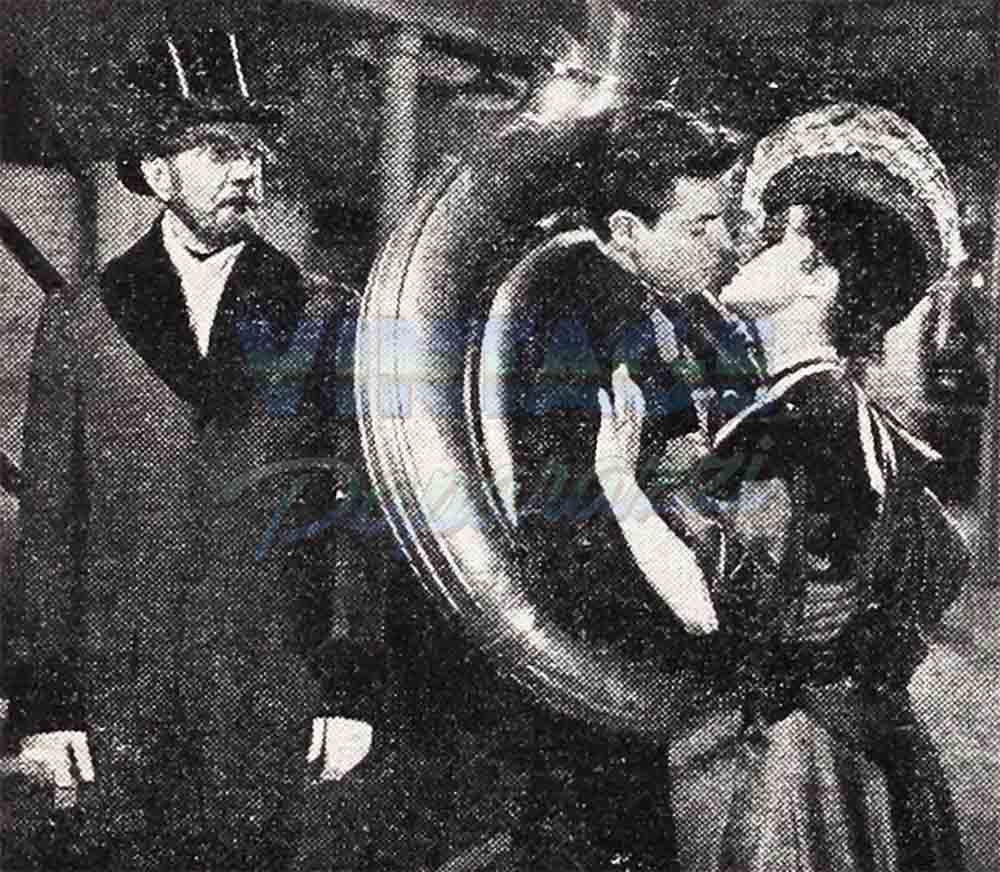
Bob Wagner has his biggest chance as the self-assured youngster who joins the Marines to get into Sousa’s band and is also in the civilian band that later stages triumphal tours. Debra Paget does a personality switch as an 1890’s version of the strip-tease artist, who becomes Bob’s secret bride. Her songs and dances show a vivacity you wouldn’t expect. Filled with spirited march music, the picture returns you to a sunny period in American history, clouded only by a small-scale war.
Verdict: Genial fun in four-four time
Cinerama (Cinerama Productions, Eastman Kodak color, print by Technicolor)
With no story, a series of spectacular sequences shows off an amazing new film technique, sure to overwhelm even the most blase movie-goer. After the New York unveiling in October, plans were quickly made to equip theatres in other cities for the Cinerama process. Its three huge p curved screens fill almost your whole field of vision; you feel yourself projected into the middle of the action, riding in a roller-coaster, soaring over the scenic wonders of America, following aquaplanes through cypress gardens, seeing a performance at La Scala Opera House in Milan. Lowell Thomas introduces Cinerama and voices the commentary.
For outdoor epics and musical spectacles, the process will surely be of tremendous value. But, judging from the shots of Thomas in his living room, it doesn’t seem calculated to add any force to the more intimate human dramas. And it has the handicap of mimicking the stage too closely. The movies’ most important distinction has always been their selectivity; the director shows you only what he wants to show you: his camera becomes your eyes. With Cinerama’s vast triple screen, he’d have the same task as the stage director—to handle every detail of the action so that you would look where he wants you to look. You can’t look directly at the whole screen at once. In this first exhibition, it doesn’t matter where your eyes stray, but if a story were being told, this would become a vital problem. However, Cinerama is a remarkable experience, which left this reviewer giddy and half-bemused.
Verdict: Brand-new movie-going adventure
The Blazing Forest (Paramount, Technicolor)
The grandeur of the redwoods and the dangers of the logger’s trade provide a promising background for an action picture, and the promise is realized in this John Payne vehicle. Payne’s acting style seems more flexible than usual in his role of tough foreman hired to boss a hurry-up logging job. Always a shrewd performer, Agnes Moorehead’s the forthright farm woman who wants to sell her timber so that she and her niece can go to the city. Susan Morrow, as the niece, is so fresh and comely that even her slight awkwardness with dialogue is ingratiating. Older hands like Richard Arlen and William Demarest help to make the tense situations convincing, Arlen as the no-good brother who is Payne’s burden, Demarest as the crippled veteran logger whose cock sureness gets the whole gang into trouble.
Verdict: Neat and breezy outdoor melo
My Pal Gus (20th Century-Fox)
To present Richard Widmark as a candy manufacturer engaged in bringing up a little son seems offbeat casting. But the part turns out to be typically Widmark, that of the cynic who finally sheds his shell. A self-made man, he’s so intent on piling up more money that he has devoted too little time to his boy. A nursery-school teacher (Joanne Dru) brings father and son closer together, and is quickly winning Widmark’s heart when the boy’s worthless mother (Audrey Totter) returns to make trouble. Many of the picture’s heart- tugging devices are pretty obvious—but effective, thanks to Widmark’s talent and the unaffected appeal of little, tough-guy George Winslow (baby baritone of “Room for One More”).
Verdict: Engaging story of parental love
Against All Flags (U-l, Technicolor)
Even its makers seem to have had little respect for this pirate film, so carelessly is it slapped together. With such an approach, Errol Flynn is at home; he plays most of his roles as if confidentially telling the audience, “We all know this is a lot of nonsense.” Here Errol’s a British Navy officer who pretends to desert in order to carry on an undercover campaign against the pirates holed up on Madagascar. Maureen O’Hara swashbuckles through her lady-buccaneer assignment as if burlesquing her “Quiet Man” performance. Also on deck are Anthony Quinn as the villain of the piece and Alice Kelley as a nitwitted captive princess. Mildred Natwick, much too good an actress to waste her efforts on such goings-on, is seen as the Scottish governess to the princess and a bevy of harem beauties.
Verdict: Ramshackle melodrama of piracy
Way of a Gaucho (20th Century-Fox, Technicolor)
Inevitably, in a story of Argentina’s cowboys, there’s a strong resemblance to the traditional western. But something alien about the shapes of the magnificent Andes and the colors of the pampas tells you that you’re thousands of miles from our own lone prairie. An American troupe headed by Gene Tierney and Rory Calhoun went to Argentina to film this re-creation of the gauchos’ wild, free life, changed by the advent of law and order.
Rory’s black-browed good looks make him visually believable as the hero whose rebellion against all discipline turns him into a hunted outlaw. But the illusion’s smashed whenever his untrained voice is heard. Gene is romantically beautiful as the noble lady who shares the outlaw’s misfortunes. The acting department is better taken care of by Everett Sloane, as Rory’s sly companion, and Richard Boone, as a stern officer. Hugh Marlowe has little opportunity as Calhoun’s closest friend, a gentle pampas-dweller.
Verdict: Stately-paced drama of Argentina
The Black Castle (U-l)
The title’s a complete tip-off on this mild chiller. Both in search of revenge, Richard Greene and Stephen McNally wander through an Austrian castle that’s stylishly equipped with dungeons, a crocodile pit, a cage for the man-eating leopard, and corridors almost as labyrinthine as the plot. Though most of the action takes place in McNally’s hideaway, those revenge motives date back to a past African bunting trip. Paula Corday, as McNally’s unhappy wife, is the lady in distress, ripe for rescue. Naturally, Boris Karloff is on hand, but since he’s gone soft and can no longer be depended upon for fiendish behavior, Lon Chaney looms up at intervals for extra menace.
Verdict: Not very horrible horror film
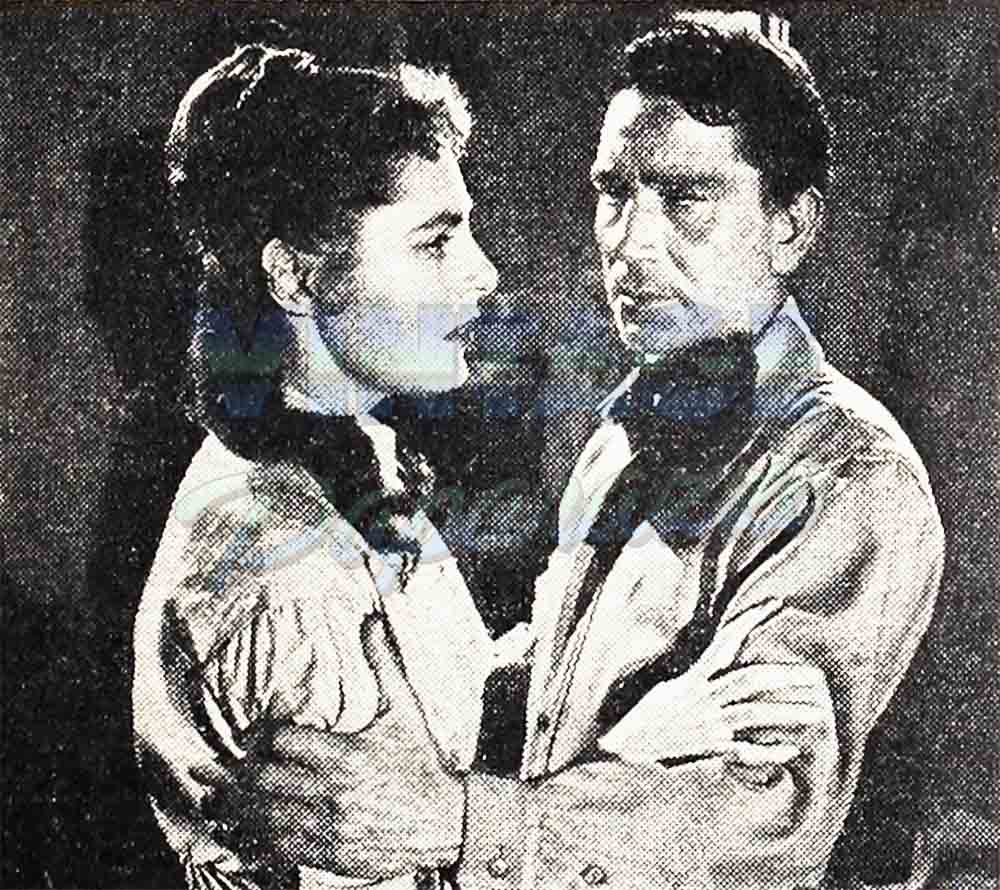
The Raiders (U-l, Technicolor)
Conventional in design, this western proceeds briskly through the adventures of despoiled settlers who turn bandits in order to ruin the claim-jumpers’ leader. With appropriate grimness, Richard Conte plays the hero out to avenge the murder of his wife and brother. Viveca Lindfors’ Scandinavian accent is supposed to sound Mexican, and she’s further handicapped by an unbecoming hair-do and the chore of pleading with Conte to stop all this violence. What audience will sympathize with a girl who wants to bring the action to a standstill? Barbara Britton’s an alternate heroine, innocent daughter of veteran villain Morris Ankrum, and William Bishop appears briefly as the honest sheriff duped by Ankrum.
Verdict: Solid fare for horse-opera fans
It is a quote. PHOTOPLAY MAGAZINE JANUARY 1953




